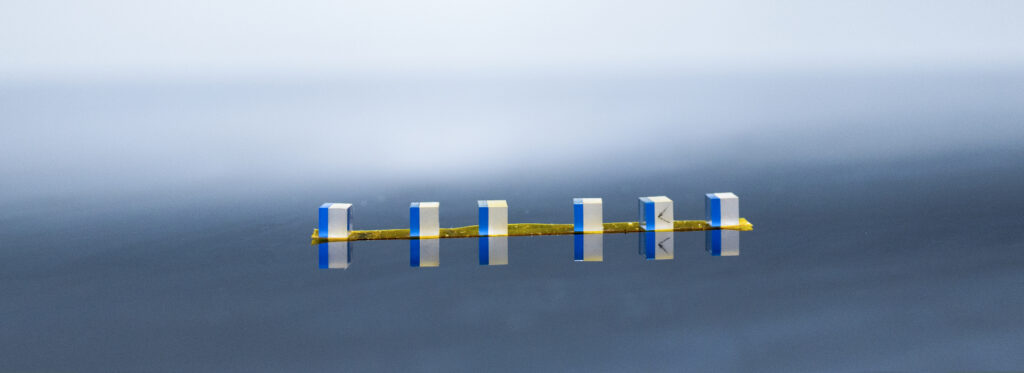Introduction
Erbium glass and cobalt spinel bonding crystals (Er, Yb:Glass + Co:Spinel) exhibited outstanding potential in optical and magnetic applications by combining the superior qualities of two materials.
Erbium glass is used extensively in fiber-optic communication and laser ranging because of its strongly gain characteristics and low loss at the 1.5 µm wavelength. Pulsed lasers are ideally suited for cobalt spinel, an effective passive Q-switching material. Er,Yb: Glass + Co:Spinel Bonding Crystal maximizes laser stability, output efficiency, and application flexibility by combining these materials, providing significant benefits in the fields of military, healthcare, and telecommunications.
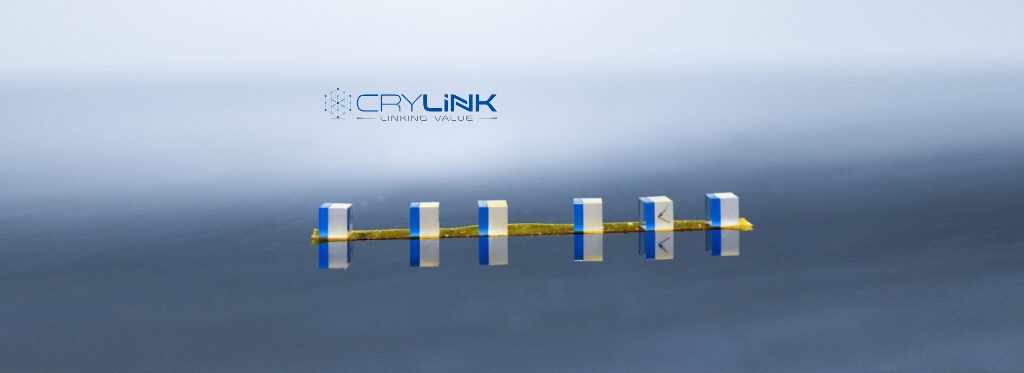
I. Material Properties of Erbium Glass and Cobalt Spinel
Key Characteristics of Erbium Glass:
- Optical Gain: Erbium glass efficiently amplifies C-band optical signals (1530-1565nm) due to its energy level transition properties.
- Stability: With stable physical and chemical properties, it is suitable for complex environments and prolonged operation in optical systems.
- Eye Safety: Operating at 1.54 µm, within the atmospheric transparency window, it is relatively safe for human eyes, making it ideal for ranging and communication systems.
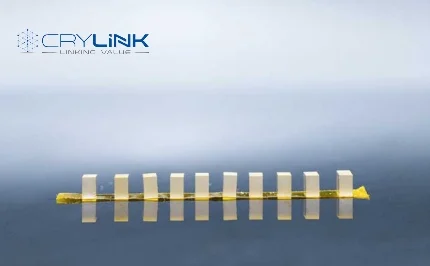
Key Characteristics of Cobalt Spinel:
- Saturable Absorption: Exhibits excellent passive Q-switching due to its high ground-state absorption cross-section (approximately 3.5×10−19 cm2) at 1.54 µm.
- High Stability: Its spinel structure ensures robust mechanical strength and resistance to thermal shocks.
- Broad Spectral Adaptability: Suitable for optical systems spanning visible to infrared wavelengths.
- Damage Resistance: With a high optical damage threshold, cobalt spinel maintains stability under high-power laser conditions.
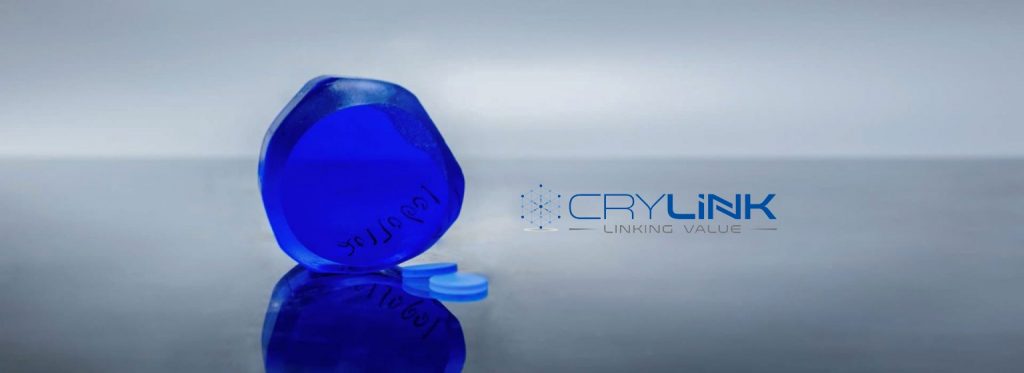
Ⅱ. Advantages of Er,Yb:Glass + Co:Spinel Bonded Crystals
Combining the above properties of erbium glass and cobalt spinel, these bonded crystals called Er:Glass + Co:Spinel Bonding Crystals and it exhibit:
- Enhanced Luminescence: Exceptional performance in the infrared spectrum, particularly at 1.5 µm, making them suitable for high-speed data transmission in telecommunications.
- Magnetic Behavior: Doping cobalt spinel imparts strong magnetism, enabling potential applications in magnetic sensing and imaging.
- Optical-Magnetic Interaction: The integration of optical and magnetic properties supports the development of multifunctional optoelectromagnetic devices.
- Structural Integrity: High-quality bonding techniques ensure structural reliability and durability.
These features make Er,Yb:Glass + Co:Spinel bonding crystals highly promising for telecommunications, optical amplification, and magnetic sensing applications.
Ⅲ. Application Areas of Er,Yb:Glass + Co:Spinel Bonding Crystals
3.1 Optical Communication:
Characteristics:
- Erbium glass provides high gain and low loss at 1.5 µm, while cobalt spinel enhances laser output stability and efficiency.
- The erbium ions in the Er,Yb:Glass + Co:Spinel Bonding Crystal emit infrared laser efficiently, with cobalt spinel facilitating high-power pulsed output as a Q-switch material.
Applications:
- Fiber Amplifiers (EDFA): Er,Yb:Glass + Co:Spinel Bonding Crystal amplify optical signal strength over long distances, reducing attenuation in applications like submarine cables, metropolitan networks, and data centers.
- Fiber Lasers: Deliver narrow bandwidth and high-efficiency laser output for high-speed data transmission and optical sensing.

3.2 Laser Technology:
Characteristics:
- Erbium glass offers efficient laser gain, while cobalt spinel enables high peak-power short-pulse lasers through passive Q-switching.
Applications:
- Laser Ranging: High-precision distance measurements for military and aerospace using 1.5 µm eye-safe lasers.
- LIDAR (Light Detection and Ranging): Generates high-resolution 3D imaging for autonomous vehicles, topographic mapping, and meteorological observation.
- Material Processing: High-power cutting, welding, and marking, particularly for heat-sensitive materials.
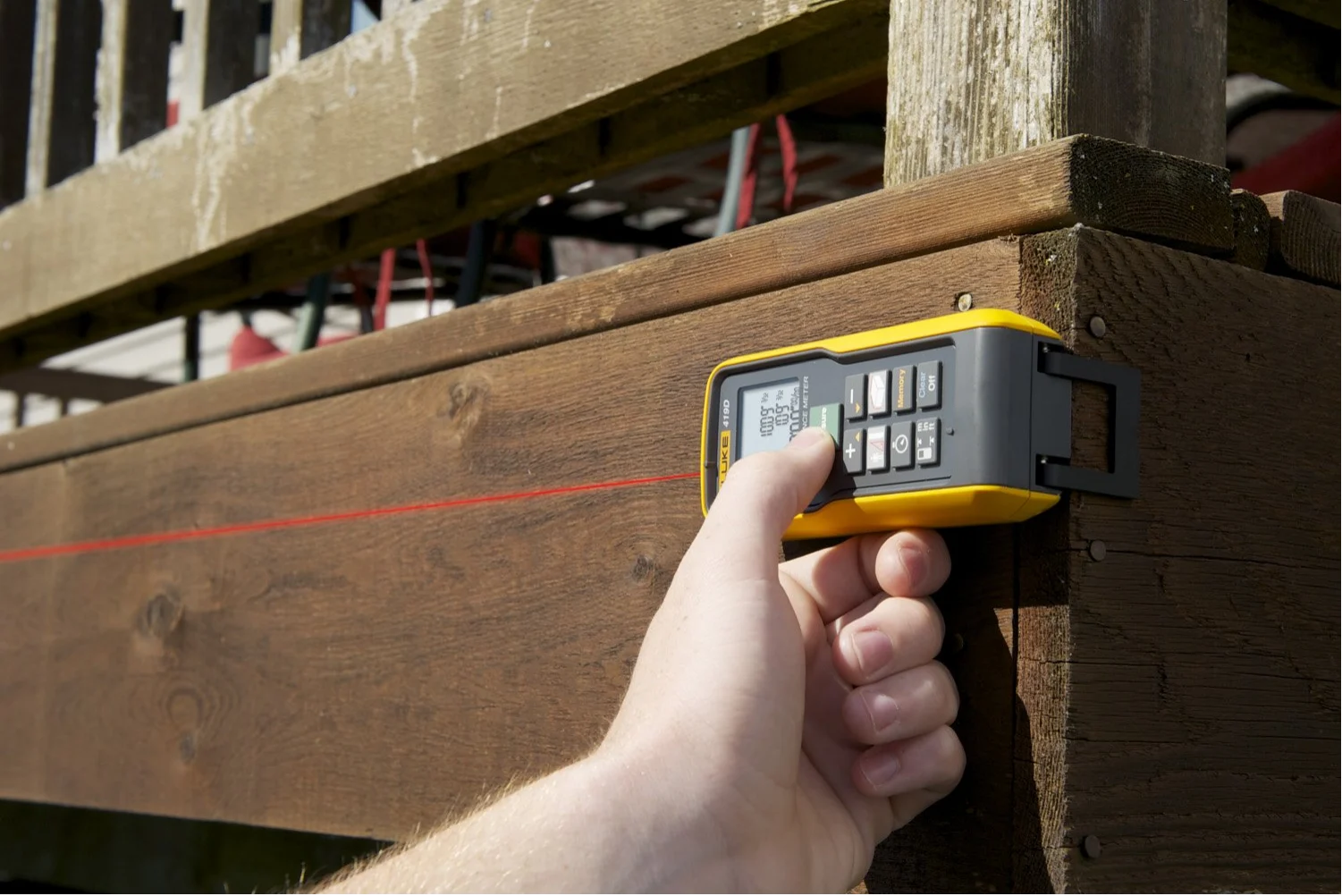
3.3 Medical and Biological Fields:
Characteristics:
- The 1.5 µm laser wavelength is safe for human eyes and offers moderate absorption by biological tissues, making it ideal for medical and cosmetic applications.
Applications:
- Medical Imaging: Enhances contrast and resolution in laser imaging systems, incorporating cobalt spinel’s magnetic properties.
- Laser Surgery: Precision treatments in ophthalmology and dermatology, including glaucoma surgery and skin rejuvenation.
- Cosmetic Devices: Used for hair removal, pigmentation treatment, tattoo removal, and skin regeneration.
3.4 Magnetic Sensing and Imaging:
Characteristics:
- The strong magnetism of cobalt spinel, when combined with erbium glass, Er,Yb:Glass + Co:Spinel Bonding Crystals, provides high sensitivity for magneto-optical applications.
Applications:
- Magnetic Sensors: Detect weak magnetic field variations for geological exploration, medical diagnostics, and industrial measurements.
- Enhanced MRI: Improves imaging clarity and diagnostic accuracy when integrated with traditional MRI technology.

3.5 Defense and Security:
Characteristics:
- The 1.5 µm laser wavelength is less detectable by conventional systems, while cobalt spinel’s Q-switching facilitates high-peak pulsed lasers.
Applications:
- Laser Target Designators: Offer precise targeting for remote strikes and guided weapons.
- Stealth Communication: Ensures secure and interference-resistant communication in military and security contexts.
- Laser Warning Systems: Monitor potential threats using high-power pulsed lasers.
3.6 Scientific Research:
Characteristics:
- Er,Yb:Glass + Co:Spinel Bonding Crystal’s broadband gain and low noise make it ideal for laboratory research.
Applications:
- Nonlinear Optics: Study ultrafast laser pulses and light-matter interactions.
- Quantum Communication: A critical light source for quantum key distribution and quantum networking.
- Spectral Analysis: Supports high-resolution spectral measurements for chemical analysis, material characterization, and astronomical observation.
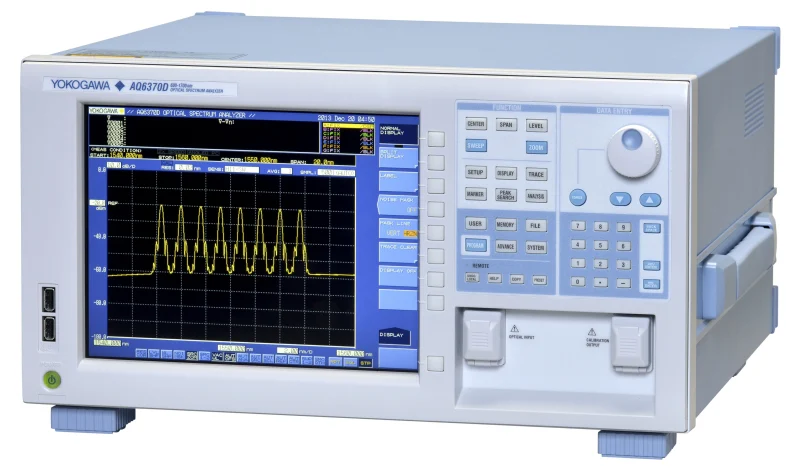
Ⅳ. Conclusion
Erbium glass and cobalt spinel bonding crystals (Er,Yb:Glass + Co:Spinel) combine the superior characteristics of both materials. Erbium glass offers high gain, low loss, and eye-safe properties at the 1.5 µm wavelength, while cobalt spinel provides strong magnetic properties and passive Q-switching capabilities.
By integrating these outstanding properties, Er,Yb:Glass + Co:Spinel is extensively used in fields such as optical communications, laser technology, medicine, magnetic sensing, national defense, and scientific research. This material significantly enhances laser system performance and stability while opening new possibilities for the development of optoelectronic devices.
Looking ahead, Er,Yb:Glass + Co:Spinel bonding crystal is expected to advance applications in optical communication modules, ultrafast lasers, biomedical diagnostics, and high-resolution imaging. Its potential in eye-safe laser equipment, stealth communications, environmental monitoring, and nonlinear optics research will drive technological breakthroughs and foster innovative applications in high-performance laser and sensing systems.
Reference
- The Introduction Of Bonded Crystals Of Erbium Glass And Cobalt Spinel(n.d.). https://www.ytoptics.com/crystals/bonding_crystals.html
- Crylink. (n.d.). The introduction of bonded crystals of Er:Glass and Co:Spinel. https://www.crylink.cn/the-introduction-of-bonded-crystals/
- Laserand. (n.d.). Co:Spinel (Co:MgAl2O4) crystals. https://laserand.com/en/co-spinel-co-mgal2o4-crystals/
- Meta Laser. (2023, August 15). The introduction of bonded crystals of erbium glass and cobalt spinel. https://www.meta-laser.com/news/the-introduction-of-bonded-crystals-70108391.html
- Nanjing Guangbao. (n.d.). Co:Spinel passive Q-switch crystal. https://www.laser-crylink.cn
- Crylink. (n.d.). Co:Spinel (Co:MgAl2O4) crystal | Q-switch crystal.https://www.crylink.com/product/co-spinel-crystals/

Frank
Frank graduated from the University of Shanghai for Science and Technology, majoring in optics. As a technical engineer at Crylink Company, he deeply understands crystal materials and laser components.
Related Video(s) with this Article
Related Product(s) with this Article
Related Application(s) with this Article



